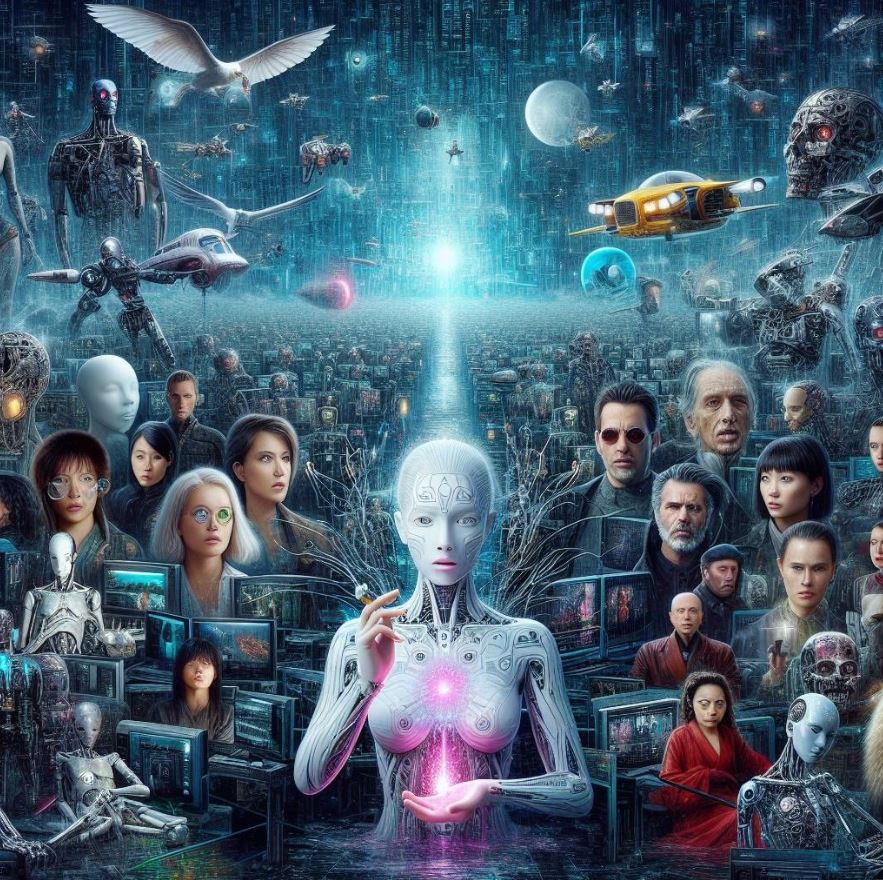 Runway AI’s Gen-4 release is shaking things up, sparking both excitement and some big questions about where the film world is headed. With a whopping $3 billion valuation after a $308 million investment from big names like General Atlantic, Nvidia, and SoftBank, Runway AI’s Hollywood journey seems unstoppable. As AI starts to reshape how we tell visual stories, industries like film, digital marketing, and social media are at a pivotal moment. It’s time to really think about what AI can do—and what its limits might be—in this rapidly changing space.
Runway AI’s Gen-4 release is shaking things up, sparking both excitement and some big questions about where the film world is headed. With a whopping $3 billion valuation after a $308 million investment from big names like General Atlantic, Nvidia, and SoftBank, Runway AI’s Hollywood journey seems unstoppable. As AI starts to reshape how we tell visual stories, industries like film, digital marketing, and social media are at a pivotal moment. It’s time to really think about what AI can do—and what its limits might be—in this rapidly changing space.
Major film studios are jumping on the AI bandwagon. Take Fabula, for example. Known for Oscar-winning hits like ‘A Fantastic Woman’ and ‘Spencer,’ they’ve teamed up with Runway AI to weave AI into their production magic. Lionsgate is also diving into AI filmmaking. Directors like Harmony Korine have already shown off AI-assisted films at international festivals. AI is doing some pretty cool stuff, from helping plan scenes for Amazon’s ‘House of David’ to crafting ads for Puma. But here’s the real question: Can AI-generated content go beyond just looking good to actually telling deep, meaningful stories?
Runway’s Gen-4 is making strides in keeping characters consistent, scenes coherent, and visuals sharp. For instance, two main characters stay consistent across different scenes, whether they’re running or interacting with animals. But even with these tech leaps, AI still struggles with storytelling. Sure, AI can whip up stunning visuals like giraffes and lions in a city setting, but can it make us feel something?
Today’s AI videos risk falling into the same trap early CGI did—focusing on flashy visuals instead of meaningful content. As creating becomes easier, we might see a flood of polished yet emotionally empty projects. While AI videos might grab our attention at first, can they inspire us to watch them again and again, or even become classics that stand the test of time?
AI is advancing in film, media, and video games. A recent project by Nvidia, Stanford, and UCSD researchers used machine learning to create 60-second animations of ‘Tom and Jerry.’ But these AI-generated videos highlight some big issues, like continuity errors and narrative gaps. These flaws show that AI has a tough time even with short stories, let alone full-length films.
Despite its hiccups, AI video generation opens up a platform for societal critique. Director Jia Zhangke’s AI film, made using Kling AI, looks at a future with robotic caregivers, sparking thoughts about aging, societal neglect, and the loss of empathy. By questioning its own existence, AI can be a powerful tool for social commentary.
To make AI films that truly resonate, filmmakers should embrace AI’s artificial nature while tackling real social issues. The most impactful AI films will likely explore human emotions, complexities, and cultural narratives that machines can’t quite capture. History shows us that film and media have always adapted to new technologies, unlocking fresh creative possibilities each time. The big question now is how filmmakers will use AI to tell stories that matter.








